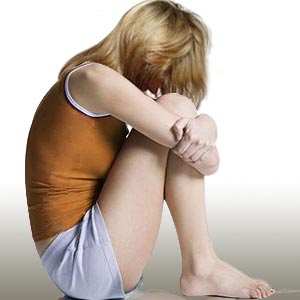Vaginal Bleeding After Menopause

You have not had a menstrual period for a full one year and have accepted menopause in a positive way. You know it is a new cycle in life and in the course of time got used to changes it begets, both physical and emotional. Just when you thought everything to be fine, you notice vaginal bleeding.
Vaginal bleeding after menopause requires immediate attention. Don't ignore and postpone a visit to a gynecologist. Here is comprehensive information about uterine bleeding after menopause. Check out underlying causes and learn ways to handle it.
Vaginal bleeding after menopause
It could be slight spotting or a heavy flow. If the woman hasn't had menstrual periods in the last one year, it indicates vaginal bleeding after menopause or post-menopausal bleeding. Four main factors that contribute to vaginal bleeding after menopause are hormonal changes, deficiency in nutrition, emotional stress and drastic weight loss. There are other causes too.
Hormonal changes: Starting hormone replacement therapy, making changes or stopping HRT, unexpected vaginal bleeding after menopause can occur. Maintaining healthy levels of hormones is very important especially after menopause. An alteration in hormonal regimen will help. Women should note down the frequency and duration of the problem along with symptoms, if any and immediately seek an appointment with health care provider.
Symptoms of endometrial cancer: In women over 60 years of age, vaginal bleeding after menopause is likely to be due to the presence of endometrial cancer.There is data which indicates that one out of every eight woman have symptoms of endometrial cancer. If detected at an early stage, there is a high possibility of curing it.
Weight loss: Drastic weight loss is yet another cause. Drastic weight loss can be due to excessive exercise, diet, surgery and various medical conditions. Treatment options are determined after analyzing specific reason for weight loss.
Deficiency in nutrition: Deficiency in certain nutrients accumulated over the years will manifest at menopause in the form of bleeding. Giving due importance to a nutrition rich diet, adhering to an exercise regimen and avoiding processed sugar, fats and simple carbohydrates will help.
Emotional stress: Feeling extremely happy or struck by grief, both can result in spurt of hormones. Changing levels of hormones impacts the body, affects body functioning and can result in bleeding.
Polyps and Fibroids: Polyps and fibroids are common benign growths that develop in the uterine cavity. Irregular light spotting, staining or light bleeding are symptoms of polyps and heavier bleeding suggests presence of fibroids. Only after specific tests can the health care provider decide future course of treatment.
Treating vaginal bleeding after menopause
Providing proper treatment is largely influenced by how soon it is diagnosed. Women who experience uterine bleeding after menopause should consider the situation abnormal and seek immediate medical attention.
It is best to fix an appointment with gynecologist immediately and taken along medical history, remember to answer questions related to how light or heavy the bleeding has been, the duration of bleeding etc. If taking medications, remember names and dosages of medicines.
Vaginal bleeding after 50 and menopause
- Questions related to duration and severity of bleeding will be asked and usage of medications such as HRT, topical estrogen and tamoxifen.
- Gynecologist may want to know if the women is diabetic, obese or has any other medical condition and is under treatment.
- Efforts to understand family history in order to find existence of gynecological cancer will be made.
- Ultrasound examination may be conducted to check presence of polyps or fibroids.
- A thorough examination of the vulva, vagina and cervix and a Pap smear test will be done.
- A uterine biopsy for microscopic examination would be necessary.
- Hysteroscopy test may be recommended to see and remove fibroids and polyps.
- Hysterectomy surgery will be performed to remove cancer.
Vaginal spotting after menopause
Women who suffer some vaginal spotting after menopause in their 50s can take similar precautions. Women who have made simple changes in lifestyle have benefited. Seldom does one need assistance from others, all that it requires is a lot of self-discipline.
- Reduce intake of caffeine and alcohol.
- Get more exercise
- Decrease intake of refined carbohydrates.
- Increase intake of nutrition, vitamins, and calcium and magnesium supplements.
- Include fish oil, fruits and vegetables.
- Try stress relief techniques like meditation, yoga.
- Drink plenty of water.
Top of the Page: Vaginal Bleeding After Menopause
Tags:#vaginal bleeding after menopause #uterine bleeding after menopause #vaginal spotting after menopause

Inserting Tampon
Pre Menstrual Syndrome Symptom
Painful Menstrual Cramps
Prolonged Menstruation
Menstrual Regulation
Menstruation after Birth
Menstrual Cup
Menstruation and Breastfeeding
Dysfunctional Uterine Bleeding
Breakthrough Bleeding
Uterine Fibroid Embolization
Vaginal Bleeding After Menopause
Menopause Symptom
Hormone Replacement Therapy
Black Cohosh
Pelvic Inflammatory Disease
Top of the Page: Vaginal Bleeding After Menopause
Popularity Index: 101,919

